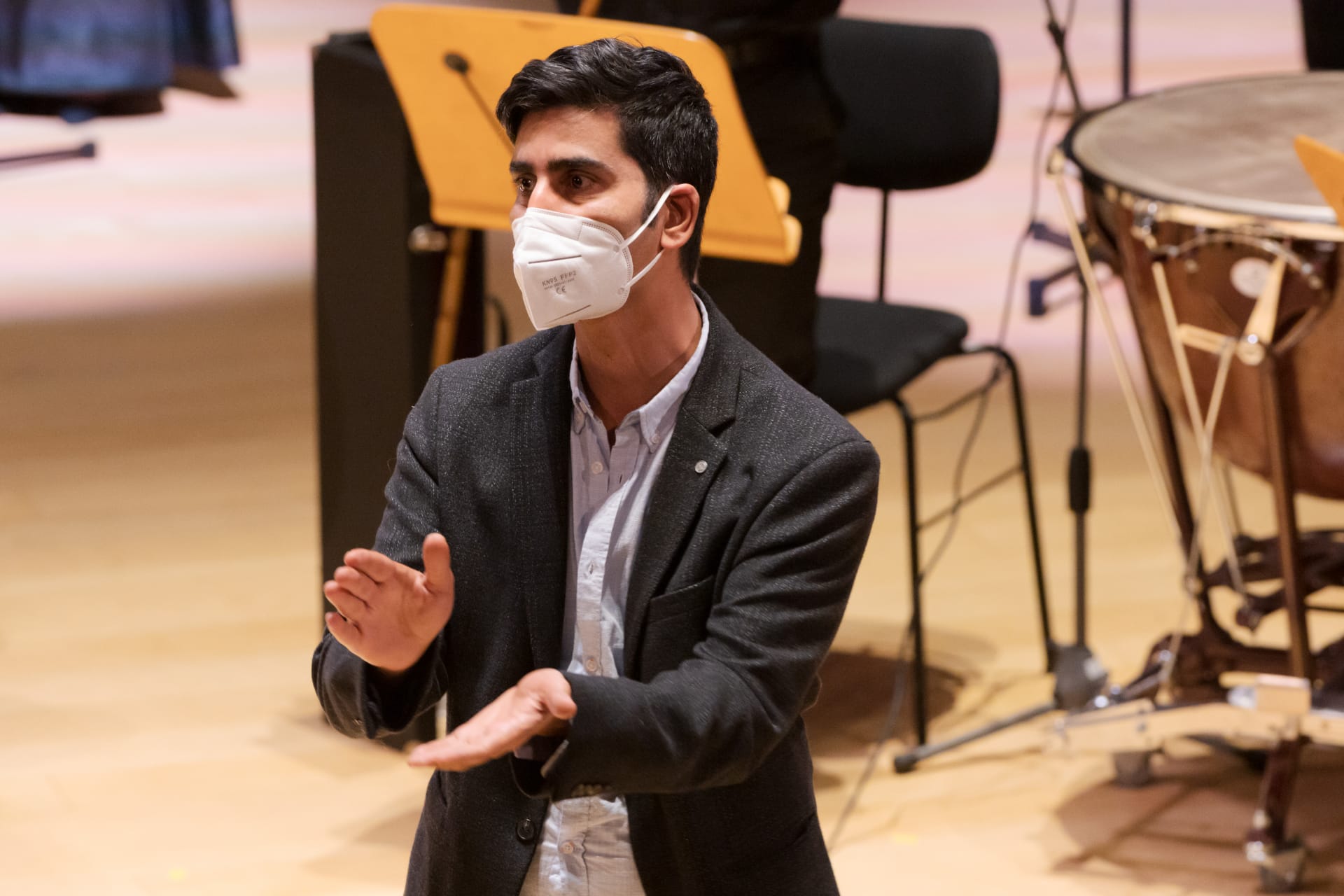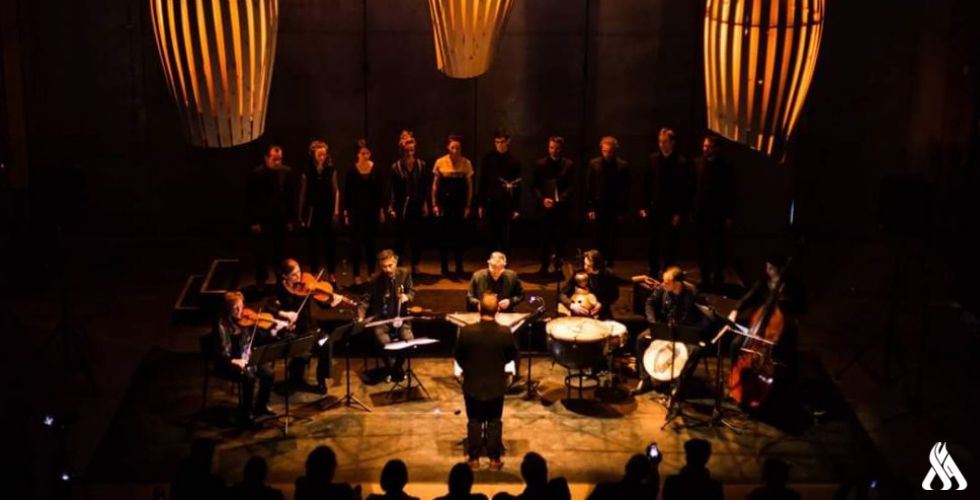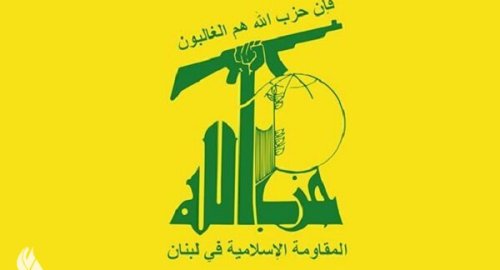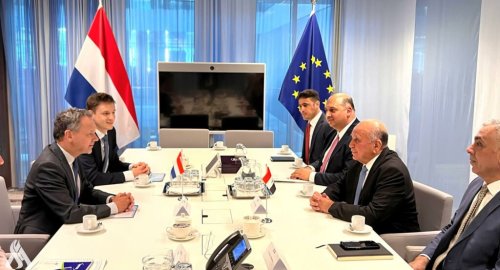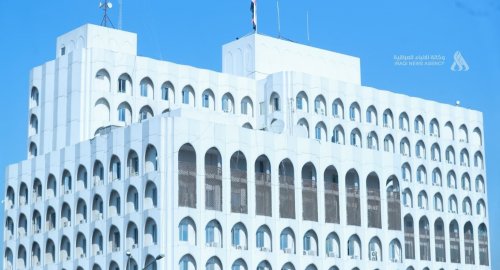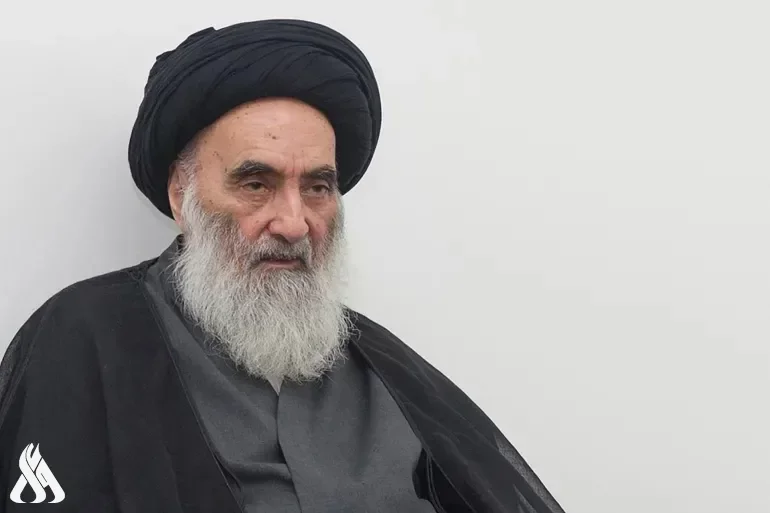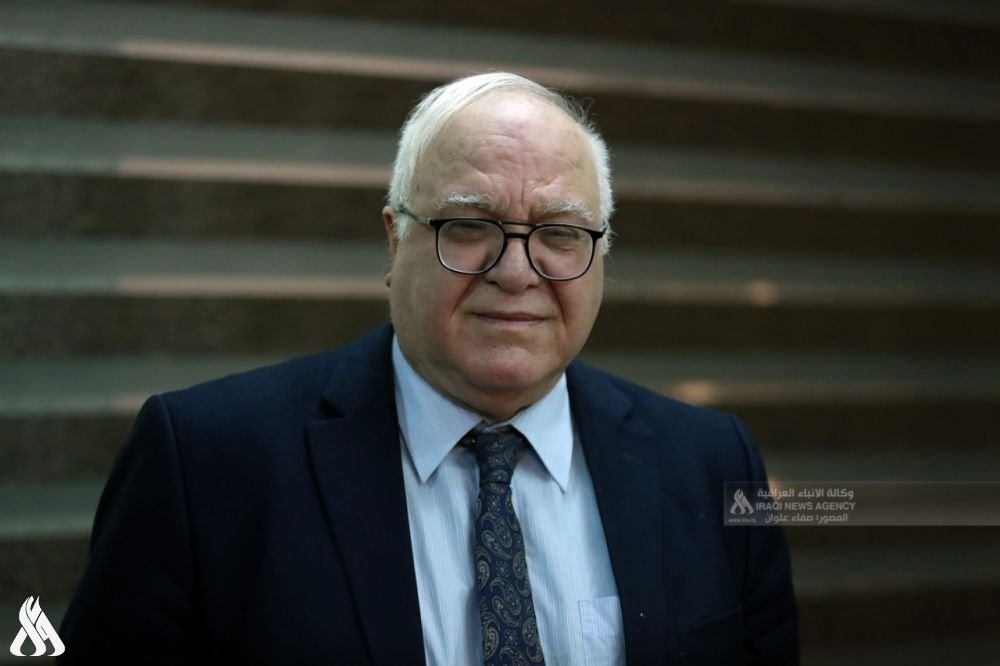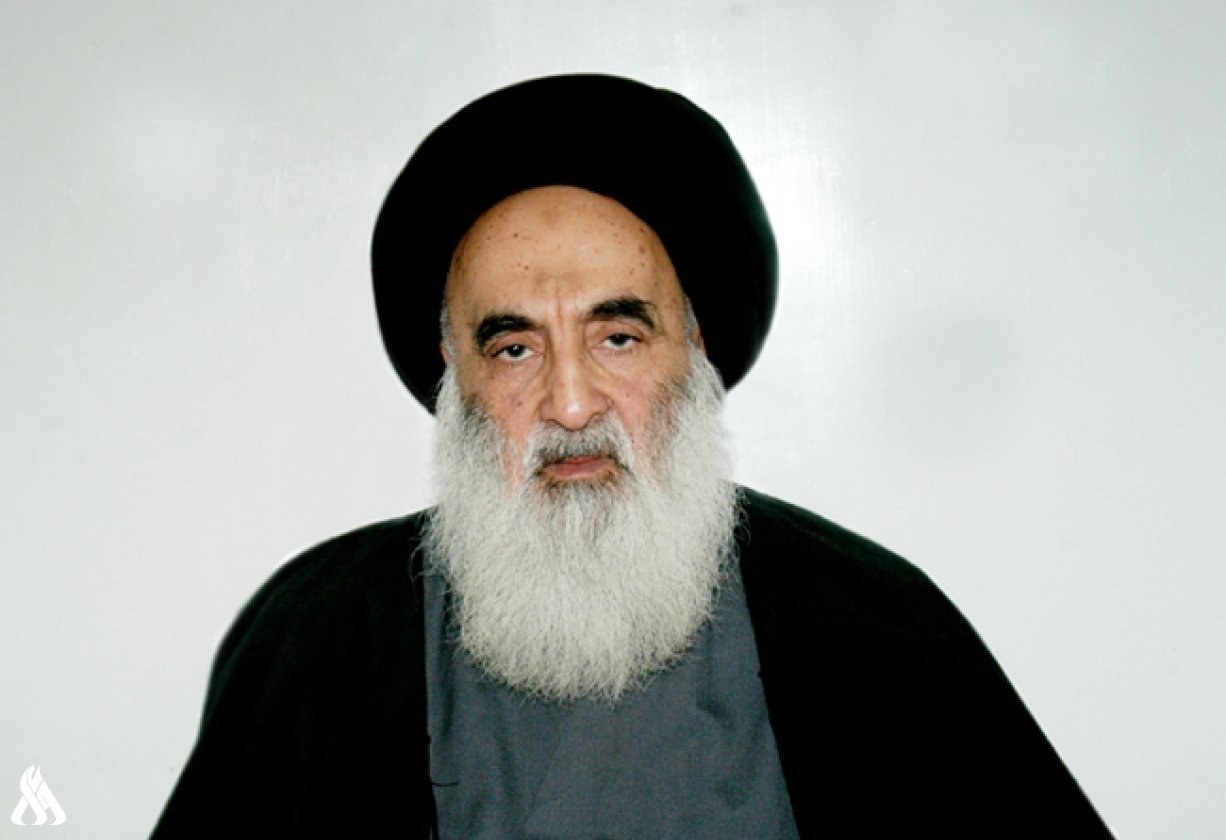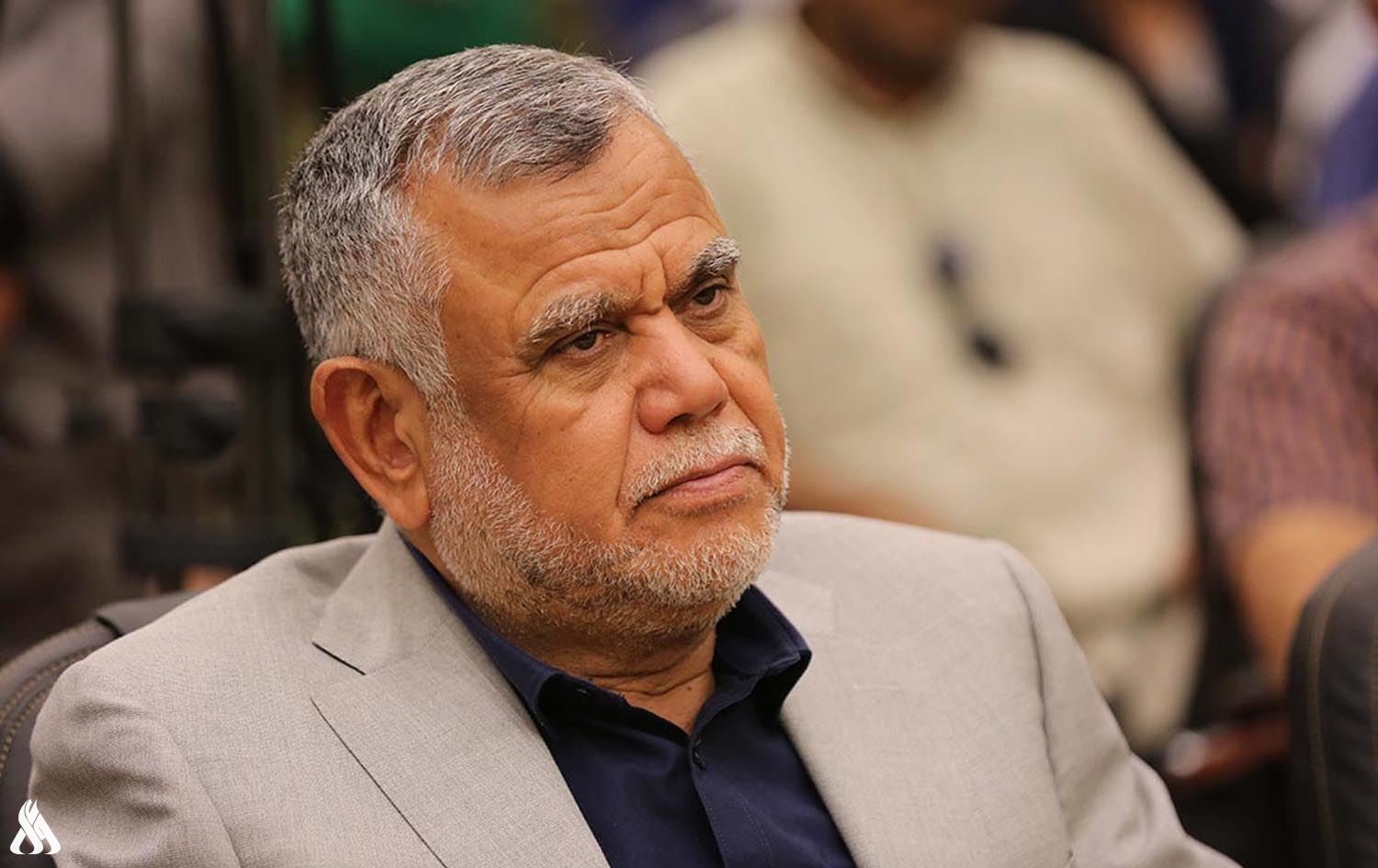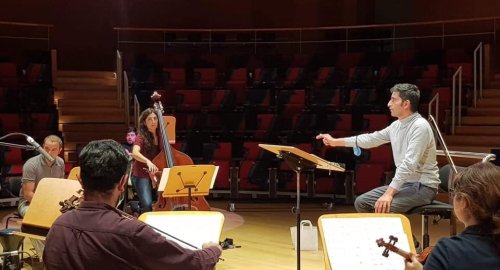
Iraqi musician launches an innovation in Abu Dhabi Festival

- 13-11-2021, 22:17
INA - BAGHDAD
Iraqi researcher and composer, Qutaiba Al-Naimi, launched the innovation of the "multi-voiced partial degree system" in the Abu Dhabi Festival.
“The polyphonic partial degree system is an extension of a long series of work started by music scholars since the time of Al-Kindi until this day, as this system is applicable to all eastern and Arabic scales with partial degrees while preserving the identity and richness of Arabic music,” said Al-Nuaimi to the Iraqi News Agency (INA).
He explained, “Starting today, it has become possible to write polyphonic musical compositions with a pure Arab identity using all oriental Arabic musical scales that carry partial degrees without exception," noting that "this innovation will own many gains in the artistic, cultural and diplomatic fields,”
"As it is known, our Arabic music is very rich, and my goal is to export it in a language that others understand in a modern scientific way. Thus, we can open the door for it to be studied and used by authors and music researchers instead of just listening to it because the new innovation will give us new orchestral vocal colors that did not exist previously, I mean, there will be an addition to the plurality of “harmony” sounds in our Arabic music. This is an artistic enrichment not only for us as an Arab or Middle Eastern region, but for the whole world,” he noted.
Al-Naimi pointed out that workshops will be presented in more than one country with the support of the Abu Dhabi Festival of Arts, and the first workshops will be in Belgium, France and the Arab Republic of Egypt for the next year 2022, as well as in many European countries for the academic year 2022-2023.
He expressed his thanks and appreciation to Abu Dhabi Group for Culture and Arts (ADMAF), headed by Hoda Kanoo, “for the absolute support to this innovation, a translation of a vision to consolidate the position of the United Arab Emirates as an incubator for Arab creators, and a global platform for developing creative ideas and launching distinguished initiatives, inspired by the principles of free and renewable creative thinking,”
La Liga continues to pressure Barcelona
- Sport
- 09:47
Zionist airstrikes target the Damascus countryside
- International
- 09:07
Foreign Minister Invites Dutch Counterpart to Visit Iraq
- politics
- 06:38
Iraq Condemns Zionist Airstrikes on Syria
- politics
- 06:36
Al-Sistani: Tomorrow, the 29th of Ramadan
- Local
- 25/03/29
Al-Amiri warns of any war between Iran and the US
- politics
- 25/04/01
